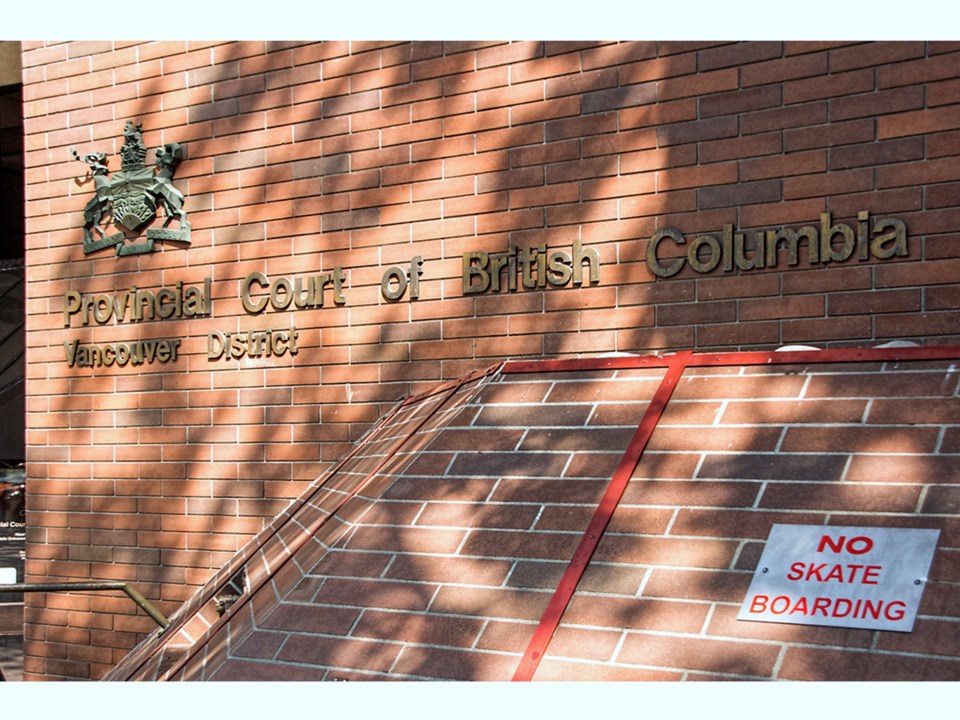I’ve got some more random facts and stats for you.
Last week, it was all about
This week, it’s all about the provincial court.
The court released its annual report March 29 and it makes for some semi-interesting reading, if you’re into the justice system and the goings-on of what happens in the courtrooms across the province.
As a former court reporter in my Richmond days, I can tell you these places are fascinating and ground zero for stories about crime, punishment and the human condition.
But today I bring you mostly facts and stats, beginning with this curious category: the number of people who represented themselves in court without a lawyer.
Before I get to the stats, a quick story: I once had to testify against a convicted sex offender who defended himself in court. It was related to a story I wrote after I interviewed him in jail.
The experience was both nerve-racking and exhilarating. Last I heard the guy was still in prison. Would he still be in the bucket if he had a lawyer acting on his behalf? Hard to say.
Anyway, the court’s annual report says in its court-language lexicon that “the number of appearances by litigants without lawyers in 2017/2018 was 126,721.”
That seems like a lot, but apparently it’s a six per cent decrease from the previous year and the lowest number in five years.
Self-representation was 18 per cent for criminal matters, 41 per cent for family and 69 per cent for small claims.
This all happened before a combined total of 114 full-time judges, 27 senior judges and one part-time judge. If you’re interested, 46 per cent of the full-time judges were women and 54 per cent were men.
In the last five years, 27 of the 50 judges appointed were women.
Most of the judges are between 50 and 64 years old, with an average and median age of 60.
So how many cases did they hear?
More than 200,000 cases were initiated in the courts during the 2017/2018 fiscal year. The bulk—114,584—were new adult and youth criminal, family, child protection and small claims cases.
Combined, that total represents a six per cent decrease, whereas the 85,990 new traffic and bylaw cases—generally heard by judicial justices—was up 14 per cent from last year.
Now to the money, which I should have placed higher up in this piece, but consider this a bonus for those of you who read this far.
Total salaries and benefits paid out in 2017/2018 was $56,155,950, which was $6.1 million over budget. Total operating expenses, including $1.5 million in travel was $7.1 million, which was $294,920 over budget.
Some other stats:
- The Office of the Chief Judge received 352 letters of complaint between Jan. 1, 2017 and Dec. 31, 2017. “Most of these complaints were not about judicial conduct, but rather were expressions of concern about the litigation,” the report said.
- With the opening of the Nicola Valley and Prince George Indigenous courts in 2017/2018, there are now six First Nations or Indigenous sentencing courts in B.C.
- As of March 31, 2018, there were 51 participants (12 women and 39 men) enroled in Vancouver’s Drug Treatment Court program. The court celebrated the graduation of 13 participants in the 2017/2018 year.
- The use of video technology saved 34,731 prisoner transports over the period of the report.
The Chief Judge, by the way, is Melissa Gillespie. She took over last year from Thomas Crabtree, who was appointed to the B.C. Supreme Court.
Gillespie described Crabtree in the report as “a fearless innovator with a strong commitment to justice for Indigenous Peoples.”
Fun fact about Crabtree: He made history in 2016 as the first Canadian Chief Judge to answer questions via Twitter in a “Twitter Town Hall,” an event he repeated in 2017.
Twitter/@Howellings



